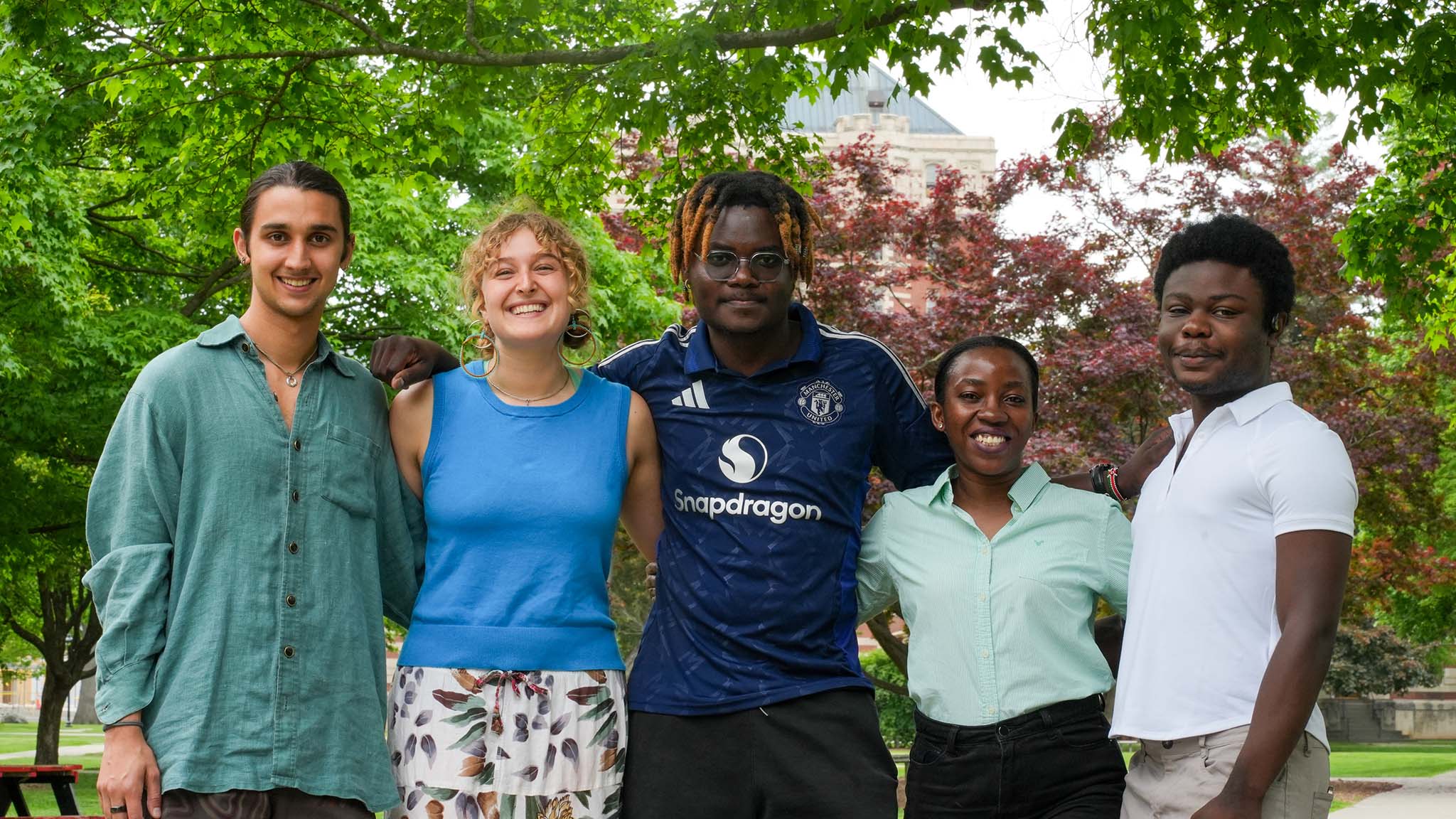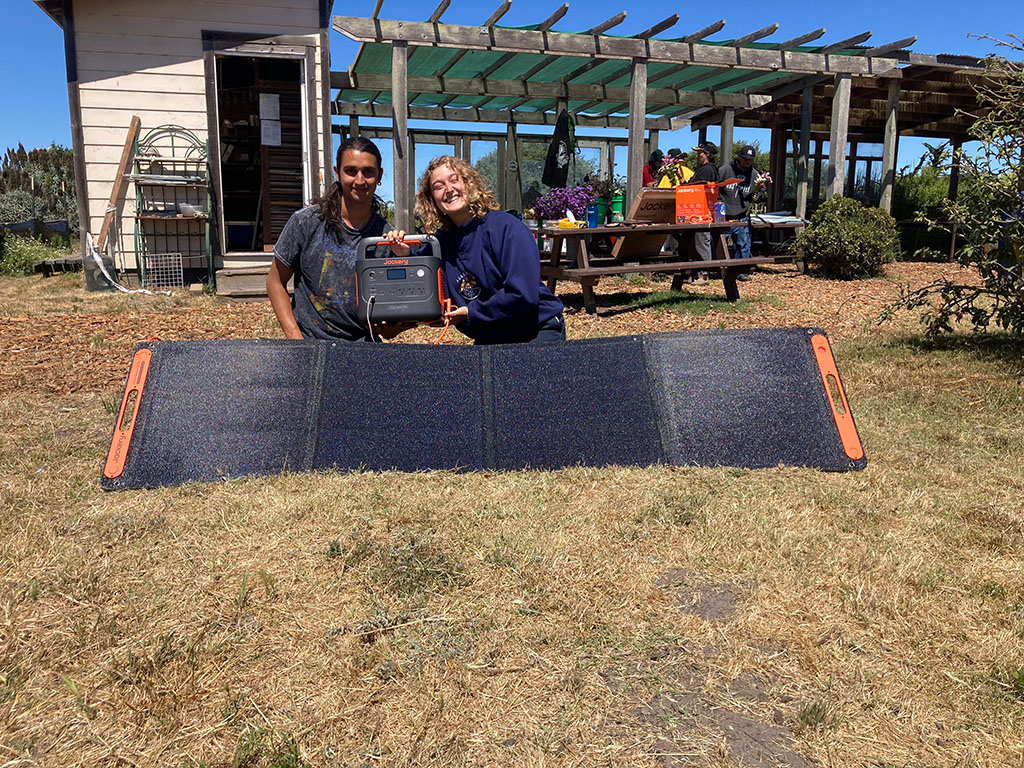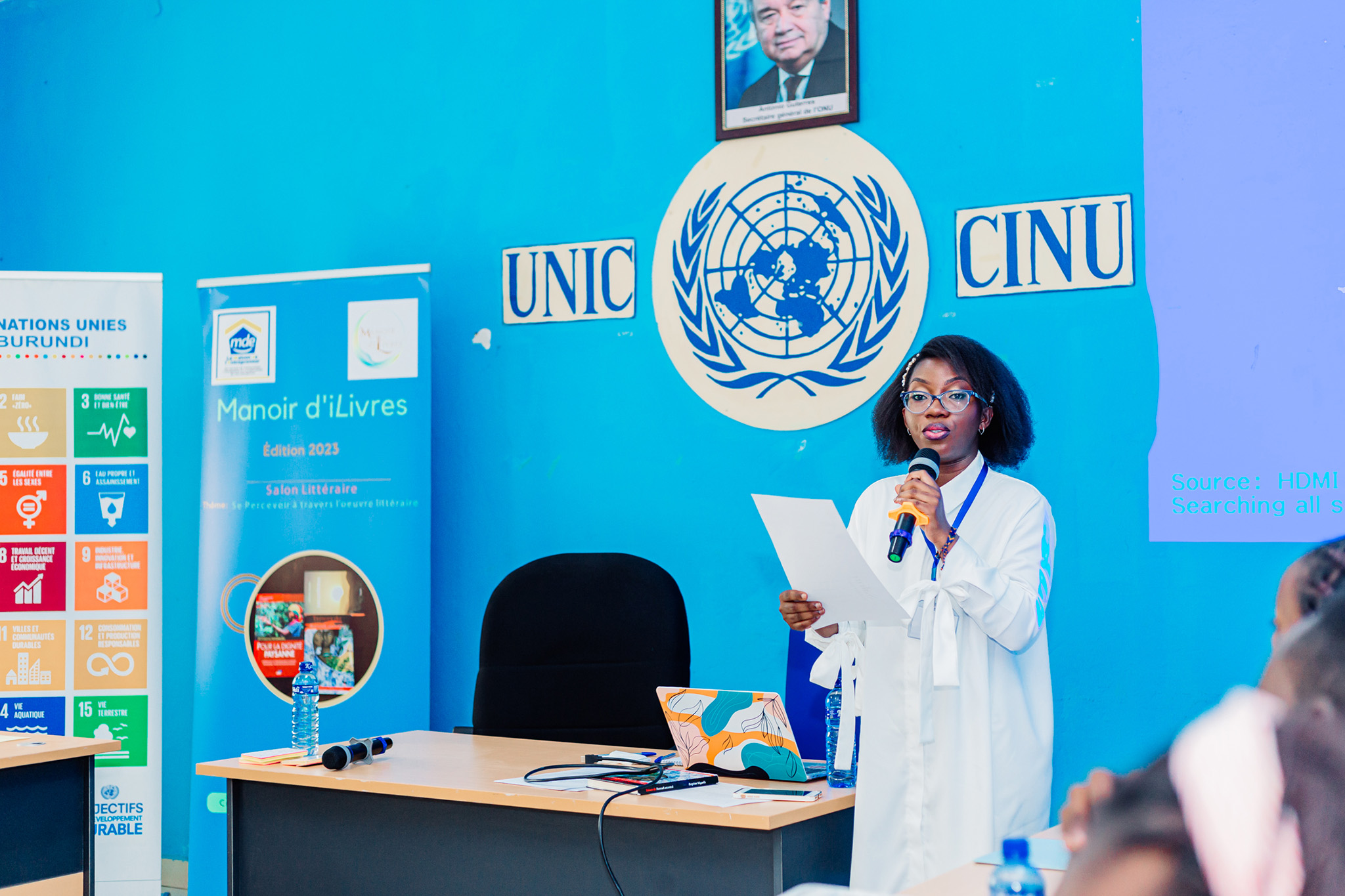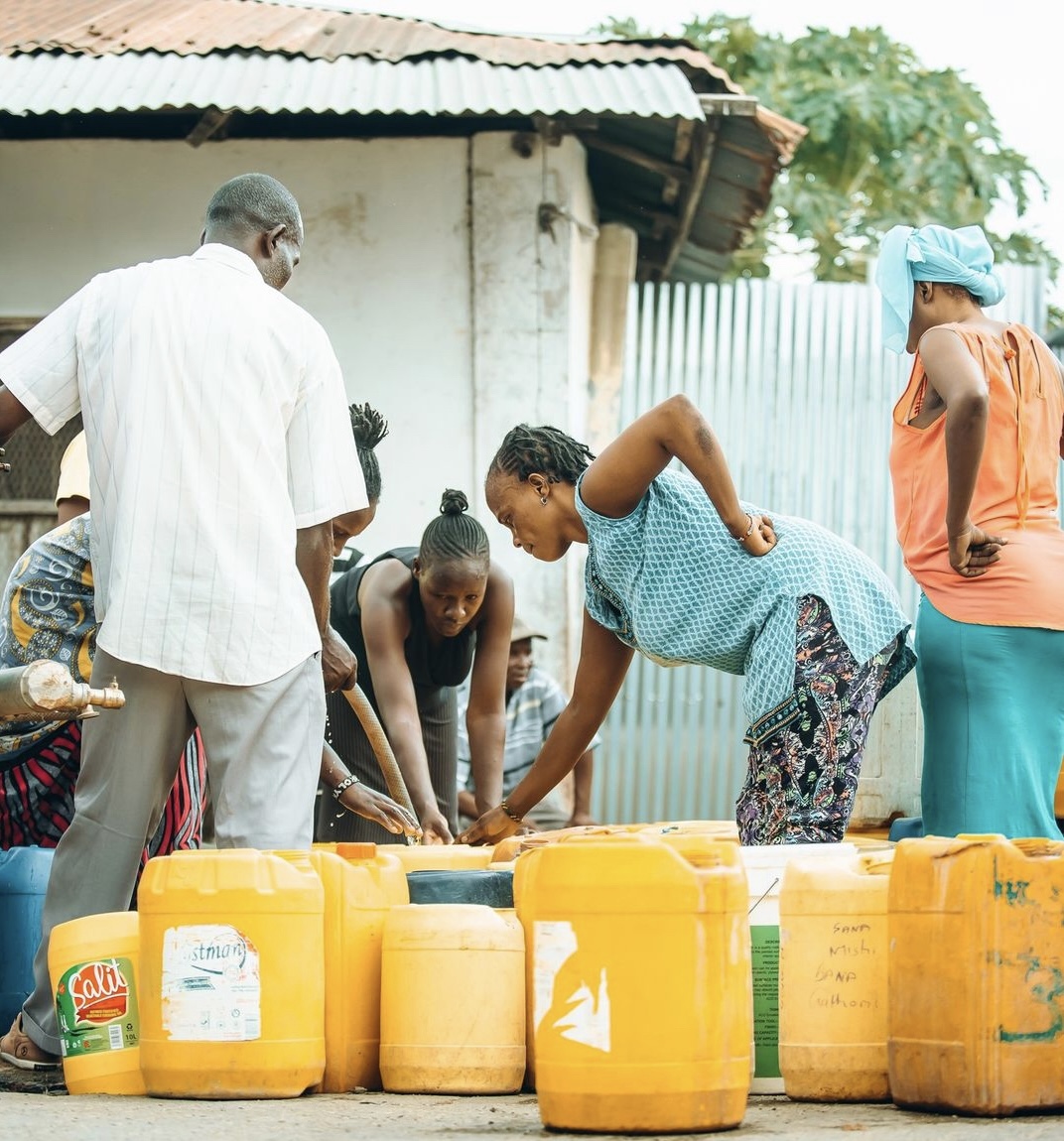Part of 100 Projects for Peace, Vassar Students Do Good in the World
Over the past two summers, five Vassar students completed four initiatives that have promoted literacy and brought clean water to communities in Africa and combated homelessness in California. Breille Irahoza ’24, Wokrit Movel ’25, Felix Omondi ’26, Pranav Parekh ’25, and Clio Maya-Johnson ’25–received $10,000 in grant money for their initiatives from 100 Projects for Peace, a program administered by Middlebury College that enables college students to address social justice issues around the globe.

Credit: Ben Richardson '25
Since its founding in 2007, Projects for Peace has funded more than 2,200 projects. Student recipients are chosen from Middlebury partner colleges and universities, based on criteria specific to their institution’s priorities. Projects may take place anywhere in the world and are led by an individual or by a group of students. Projects for Peace was founded by Kathryn W. Davis, who celebrated her 100th birthday by supporting 100 Projects for Peace that were designed “to bring about a mindset of preparing for peace, instead of preparing for war.”
The following are brief reports on each of the Projects for Peace initiatives undertaken by Vassar students in 2023 and 2024.
Pranav Parekh ’25 and Clio Maya-Johnson ’25: Supporting Santa Cruz’s Homeless Garden Project

Parekh, a biology major who grew up in Santa Cruz, had been familiar with the work of the Homeless Garden Project since his childhood. The organization hires homeless people to raise fruits and vegetables on a six-acre plot of land, enabling them to gain skills to find other employment and, eventually, housing.
Parekh and Maya-Johnson, an environmental studies major from Madison, WI, used funds from Projects for Peace to provide resources to HGP's unhoused workers, host educational training on de-escalation, and foster community through public events. By purchasing solar panels, they were able to supply the farm with its first electricity.
Parekh said it was moving to see trainees of the Homeless Garden Project positively impacted by the resources brought in, and to see other members of the community join in supporting. "We weren't always experts in what needed to be done, so it was a beautiful learning experience to hear from people who knew the terrain better than we did, and then spread that information to others looking to help."
Maya-Johnson said a social worker at the Homeless Garden Project had told her she was grateful for the awareness the summer’s events had raised about the farm being an accessible community space.“ I think we helped to set an example for collaboration that may have inspired more members of the community to become involved,” she said. “We learned that people who had volunteered to cook at events in the past had returned for our event, and a number of musicians began planning a concert to raise funds. It was empowering.”
Breille Irahoza ’24: Promoting the Work of Three Burundi Writers

Irahoza, an environmental studies major from Bujumbura, Burundi, organized a three-day critical reading event for 45 young people in Bujumbura August 8–10, 2023. The event featured readings from works by three contemporary Burundian writers: Trésors du Burundi Ancestral by Perpétue Miganda; Pour la Dignité paysanne: Expériences et Témoignages, Réflexions et Pistes Méthodologiques by Déogratias Niyonkuru, and Les Paillettes by Jeanne d’Arc Nduwayo.
Perpétue Miganda has held several positions in human rights, peace, and national reconciliation fields in Burundi. Déogratias Niyonkuru is the co-founder of ADISCO, which promotes its work in entrepreneurship and creates health insurance cooperatives. Niyonkuru was also the winner of the King Baudouin Prize for the development of Africa 2014–2015. Jeanne d'Arc Nduwayo hosts literary salons at Institut Français du Burundi (IFB) and the Alliance française de Gitega.
The literary salon took place at the United Nations Information Center, where the authors presented the fundamental themes chosen and enlightened young people about the critical points of their books. The discussions and reflections “allowed young people to collectively explore indigenous conceptions of life, spiritual and moral ideals, environmentalism, cultural values, customs and taboos, and resilience,” Irahoza said.
Following the conference, Irohoza ensured that donations of 60 samples from the book series were made to 15 high schools and universities across Burundi, chosen by the participants. The program team ensured the books were in the designated libraries.
“I will always be grateful for this project because, through dialogue, young people understand themselves better and respectfully challenge each other with their different ideas, beliefs, and visions, which is a fundamental basis for promoting peace,” she said. “For this reason, I have come to understand peace as the freedom to know ourselves through the eyes of those around us.”
Felix Omondi ’26: Bringing Clean Water to Two Kenyan Villages

Omondi, a computer science major from Mashimoni, Kenya, grew up in a region of the country that had no reliable water supply. “The people there have to buy water, and it’s often contaminated, causing illness,” he said.
Omondi said he had learned about Projects for Peace from other Vassar students, so he applied for the $10,000 grant to build a water station between the villages of Mashimoni and Laini Saba. He was there in the summer of 2024 to oversee the construction and attended an opening-day ceremony where water was given away for free. “The free water continued for three months and then was sold at a rate that was lower than what the people there had been paying,” Omondi said.
“There were lots of people I knew at the grand opening, so this was very personal for me,” he continued. “My friends and neighbors are safe from illness now.”
Wokrit Movel ’25: Refurbishing a Town Library in Nigeria
Movel, a computer science major from Pankshin, Nigeria, said that the library in his hometown was a place he loved growing up, and was sad to see it falling into disrepair. With funds from Projects for Peace, he had solar panels installed, acquired books and computers, replastered the interior, and repaired the roof.
Movel noted that electricity is scarce in that part of the town, so the solar-powered phone charging stations that were installed attracted more families to the library itself. “The library used to attract 10 or 12 people a day, but after the renovations, it has increased to 50 or 60, and on many days as many as 100,” he said.
Working remotely from the United States, Movel organized a grand opening event that featured an essay contest for young people. “I take great pride in what we accomplished, and then, government leaders saw what we had done, they promised to find more improvements,” he said. “This project has taught me that change is possible, and I plan to return to Africa after I graduate; in the coming decades, I think Africa will be the place to be.”